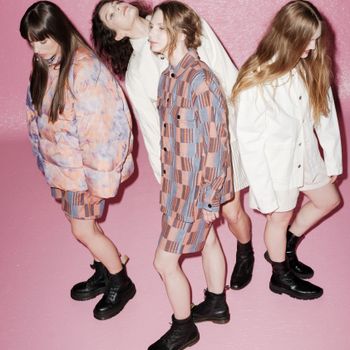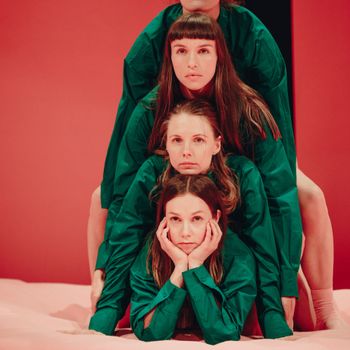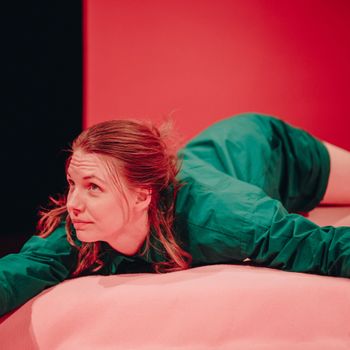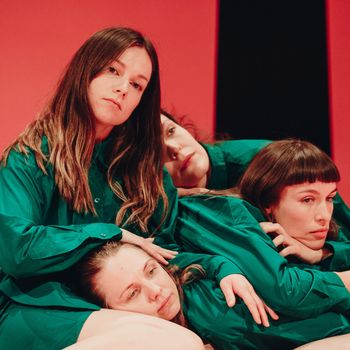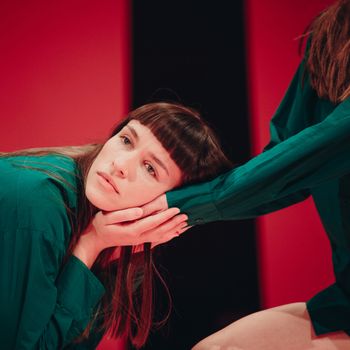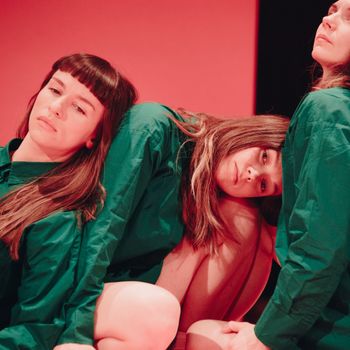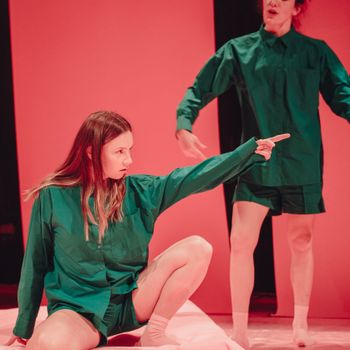The Biofilm Sisters: Mari-Liis Eskusson, Katrin Kreutzberg, Arolin Raudva, Hanna Junti, Anumai Raska and Alise Bokaldere present - "Pure Pink Pox"
Remember when dancers used to sweep you off your feet just by standing on the stage? Remember when dancers had a great body? Remember when dancers had a great relationship with their body? Remember when dancers had a regular income and health insurance? Remember when dancers had taken their seats in the art kitchen? Remember when young female dancers used absurdity, sexuality, and irrationality the critics lacked the means to understand? Remember when dancers began testing nuclear bombs? Remember when dancers created a civilization on Mars? Remember when dancers saved you from misery? Remember when not all was lost? Remember when all promises were fulfilled?
The Biofilm Sisters have met again to take a few steps further from the ideas explored in their last performance All that goes Right in 2019. We are middle class women admitting to have middle class dreams. We are harmless and adorable, until the border of becoming dangerous is crossed. How do preferences and sympathies form groups and how do those groups become exclusive? How does a seemingly innocent idea become ideology, and how can that ideology become fascist? Reflecting on our position and privileges in the global context, Pure Pink Pox observes how all of us have internalised some justifications for the inequalities that produce violence. Who is responsible – the individual or the system? The Biofilm Sisters will try to make this as comfortable as possible.
Biofilm is the accumulating filth between the stove and the cupboard in the kitchen. Everyone knows that it’s there, easier to be ignored than to be dealt with. The Sisters use biofilm as a thinking space and give no promises to attempt cleaning it.
Mari-Liis Eskusson is a dance artist who is interested in creating and playing with meanings through performance art. With the Biofilm Sisters she has entered a playground for her as an artist and truly enjoys choreographing text.
Katrin Kreutzberg is a personal trainer and performance artist, whose main interest in life lies in exploring how we operate and evolve as humans, both physically and mentally. In everyday life she works in a gym, helping people to build a better relationship with their bodies.
Arolin Raudva is a performance artist, dancer and a choreographer. On her creative path she has followed her curiosity of diving into new experiences and collectives in order to keep her identity evolving and dynamic. The existence of biofilm makes her gaze into places she otherwise wouldn’t.
Hanna Junti is a performer and choreographer, whose practice unfolds at the intersections of theatre and dance. Her work is influenced by the multicultural velocity of her former hometown London, is inspired by paradoxes, and fuelled by a desire to understand what moves us humans.
Anumai Raska was born on the fifth of May, around five o'clock in the morning, as the fifth child of the family. As a performance artist and dancer, she works from personal experiences, memories, and through the body worn by technique. The focal point of her work so far has been the relationship of an individual with her surroundings, together with the loneliness/solitude that lies between them. Among other things, Anumai has curated the dance and performance art event Battlejämm for the last 3 years. Her latest production: "Long understood", was performed this summer at Maardu Decennial. As a performer, she has taken part in several works, such as Katariina Unt's "The Maids", Keithy Kuuspu's "Falling" and Ruslan Stepanov’s and Artjom Astrov's "Performance in STL”.
Alise Madara Bokaldere is a Latvian-Swedish-American contemporary dancer and choreographer. Through 15+ years of dance training, she has developed a strong movement language and physicality. Her choreographic work is intricate, focusing on details and nuances.
Performance on the 9th of June was followed by an artist talk moderated by Sanna Kartau and on the 23rd of April was followed by an artist talk led by young theatre scholars form the University of Tartu.
